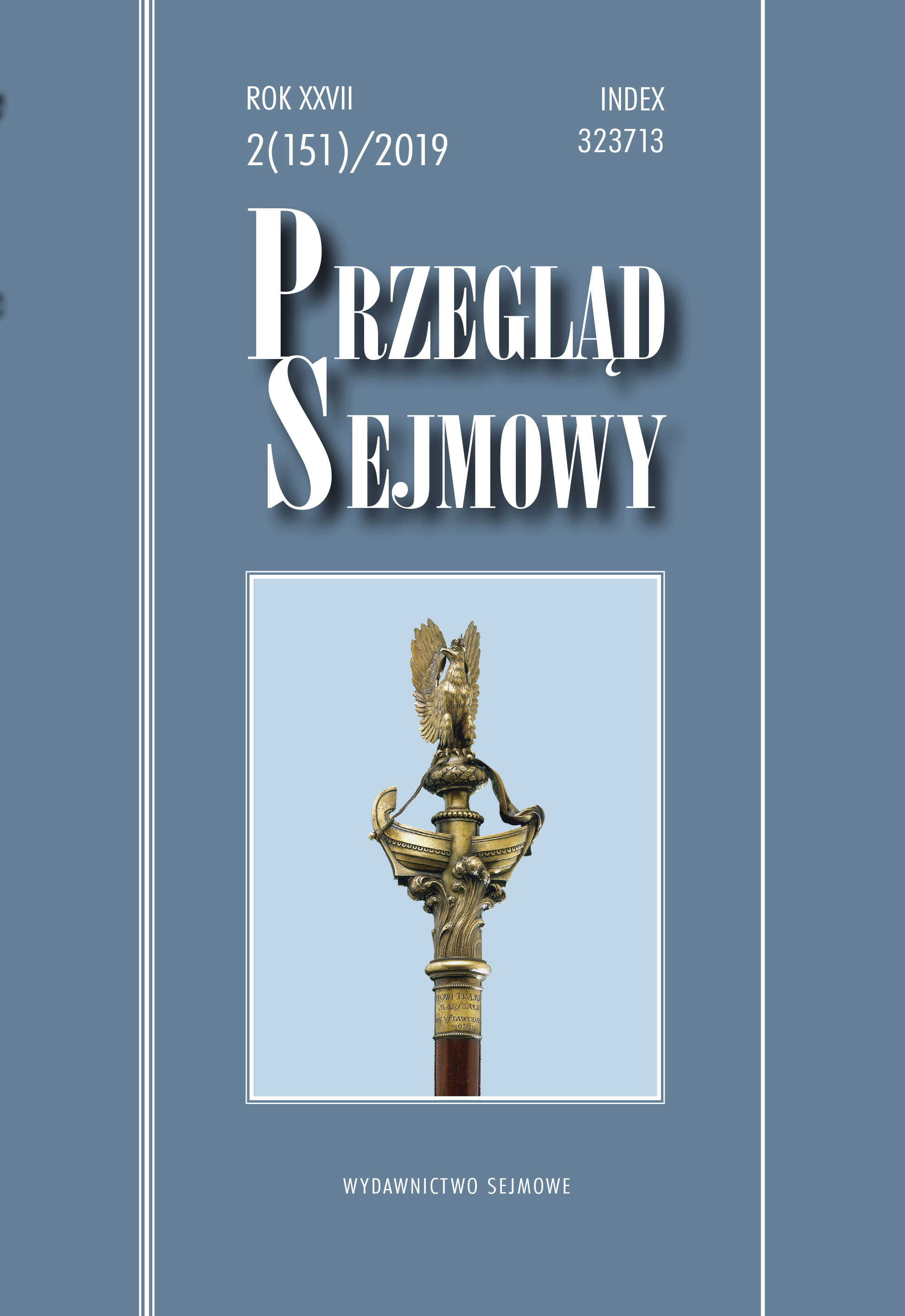Powstanie Republiki Czechosłowackiej po I wojnie światowej i znaczenie rewolucyjnego Zgromadzenia Narodowego w tym procesie
The revolutionary National Assembly and its role in establishing the First Czechoslovak Republic after the First World War
Author(s): Róbert LetzSubject(s): Politics, History of Law, Political history
Published by: Kancelaria Sejmu
Keywords: Czecho-Slovak domestic and foreign resistance; break-up of Austro-Hungarian Empire; formation of Czecho-Slovakia; Czechoslovak National Committee; Revolutionary National Assembly;Slovak National Council;
Summary/Abstract: Soon after the First World War broke out in 1914, both in the country and abroad a movement was formed aimed at establishing an independent Czecho-Slovak state. It was hoped that Austria-Hungary would collapse and Germany be defeated. To reach its goal, the independence movement had to obtain the support of Czechs and Slovaks abroad, mainly in the USA, France and Russia, as well as benevolence of the Entente Powers. Initially, the decisive influence of Russia was taken into consideration, which resulted in the postulate to preserve monarchy. As Russia’s position was weakening, the Czecho-Slovak resistance movement became more oriented towards Entente’s western powers and gradually, especially abroad, emphasized the vision of the future state as a republic and its democratic system. In order to understand the establishment of the Revolutionary National Assembly in Prague in 1918, the origin of its founding must be presented and a reference made to Austro-Hungarian parliamentarism. On 19 November 1916 information was published on founding the Czech Union comprising Deputies of the Austrian Parliament — the Imperial Council (Reichsrat) in Vienna. It was a group of Deputies of nine political parties, who committed themselves to act in accordance with the principle of majority in national-political and constitutional-legal matters. Simultaneously, the National Committee was founded as a permanent body associating representatives of Czech political parties. It was to support the Czech Union as the highest authority in those matters of political life that transgressed competences of Deputies to the parliament. Initially, the Czech Union was loyal to the Austrian government and even distanced itself from the Czecho-Slovak resistance movement abroad. Among the Czechs important organizational elements were established, which contributed to the creation of the union and became a catalyst of the Czech political life.Soon after the First World War broke out in 1914, both in the country and abroad a movement was formed aimed at establishing an independent Czecho-Slovak state. It was hoped that Austria-Hungary would collapse and Germany be defeated. To reach its goal, the independence movement had to obtain the support of Czechs and Slovaks abroad, mainly in the USA, France and Russia, as well as benevolence of the Entente Powers. Initially, the decisive influence of Russia was taken into consideration, which resulted in the postulate to preserve monarchy. As Russia’s position was weakening, the Czecho-Slovak resistance movement became more oriented towards Entente’s western powers and gradually, especially abroad, emphasized the vision of the future state as a republic and its democratic system. In order to understand the establishment of the Revolutionary National Assembly in Prague in 1918, the origin of its founding must be presented and a reference made to Austro-Hungarian parliamentarism. On 19 November 1916 information was published on founding the Czech Union comprising Deputies of the Austrian Parliament — the Imperial Council (Reichsrat) in Vienna. It was a group of Deputies of nine political parties, who committed themselves to act in accordance with the principle of majority in national-political and constitutional-legal matters. Simultaneously, the National Committee was founded as a permanent body associating representatives of Czech political parties. It was to support the Czech Union as the highest authority in those matters of political life that transgressed competences of Deputies to the parliament. Initially, the Czech Union was loyal to the Austrian government and even distanced itself from the Czecho-Slovak resistance movement abroad. Among the Czechs important organizational elements were established, which contributed to the creation of the union and became a catalyst of the Czech political life.
Journal: Przegląd Sejmowy
- Issue Year: 2019
- Issue No: 1
- Page Range: 111-135
- Page Count: 25
- Language: Polish

